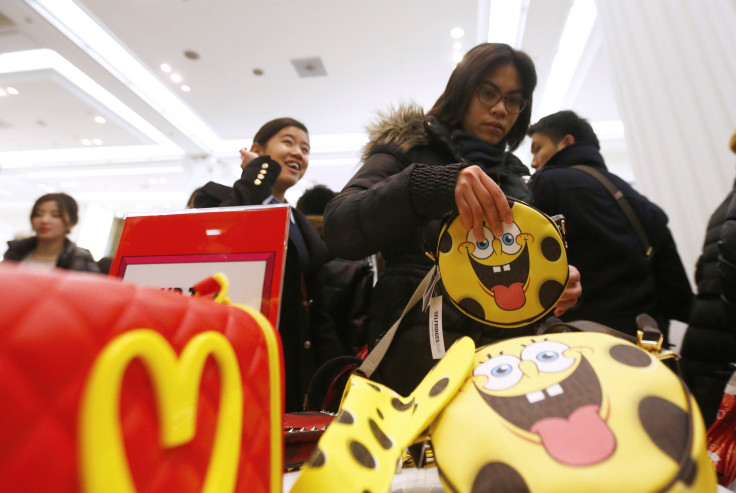UK Retail Sales Stronger Than Expected As Sun Brings Out Shoppers

British retail sales rose more strongly than expected in April, recovering from a surprise fall in March, as unusually warm weather encouraged shoppers to buy new clothes, official data showed on Thursday.
Retail sales volumes rose 1.2 percent on the month, the strongest increase since November, to show 4.7 percent growth on the year, the Office for National Statistics said.
Economists had expected retail sales to rise a monthly 0.4 percent and for sales to be up 3.8 percent compared with April last year.
The strength of the figures may further ease concerns that a slowdown in Britain's economy seen in the first quarter might be the start of a longer period of weakness.
But the sharp increase in sales was due in large part to a possible one-off surge in purchases of clothing, textiles and footwear which jumped by 5.2 percent in April from March, the biggest monthly rise in four years.
"It's a weather factor," an ONS official said. "You've had warmer than average weather which has led to consumers bringing forward purchases of summer clothing."
Excluding fuel, sales were also up by 1.2 percent in monthly terms and by 4.7 percent compared with April last year.
A drop in fuel sales in March, when oil prices showed some recovery from their previous slump, had caused overall retail sales in that month to fall by 0.7 percent.
By contrast, fuel sales in April rose 2.0 percent from March, the ONS said.
Britain's consumers have been the main driver of the country's economic recovery which began in 2013. A fall in inflation, which turned negative in April for the first time since 1960, and a pick-up in wages have helped restore some of the spending power lost in the years after the financial crisis.
The Bank of England last week noted "robust" growth in retail sales in the first quarter of the year but said it was too soon to know how much of the increase was due to the fall in petrol and food prices.
Sales of food fell by 0.1 percent, underscoring a weakness in demand faced by some supermarkets.
Asda, the British arm of U.S. retailer Wal-Mart, reported its worst quarterly sales in more than five years on Tuesday and its chief executive said customers were "not yet cash-confident."
© Copyright IBTimes 2024. All rights reserved.











